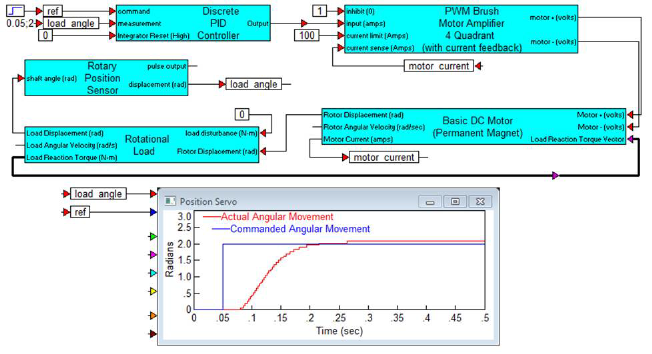
Category: Toolbox > eDrives > eMotors (Legacy) > Sensors
Inputs:
•shaft angle (rad): Specifies the displacement of input device to be measured.
Outputs:
•pulse output: Indicates the pulse output corresponding to passage of a cycle over a Hall sensor.
•Displacement: Indicates the counter output scaled by number of vanes per 1 rotation of the shaft to provide angular displacement.
Description: The Rotary Position Sensor block models the behavior of a vane-operated rotary position sensor that uses digital (ON/OFF) Hall sensors. Shaft angle motion creates pulse output as vane interruption between Hall sensor and magnet complete a flux path and the Hall sensor shuts off (it is normally on). A pulse counter simulates electronics or software that accumulates pulses for displacement measurement. Phasing determines UP/DOWN count. You specify the number of vanes on the wheel and the corresponding window/vane ratio. A cycle is the size of the combined window and vane.

Number of Vanes: Indicates the number of vanes on the interrupter wheel.
Vane/Cycle Size Ratio: Indicates the proportion of space occupied by the vane interrupter vs. total cycle. A cycle is the size of the combined window and vane.
Hall Switching Hysteresis (radians): Sets the Hall device switching hysteresis characteristic.
Diagram name: Rotary Position Sensor
Location: Examples > eDrives > eMotors (Legacy) > Sensors
The example below shows a brush DC motor model controlled by a PI compensator in feedback with the Rotary Position Sensor block.
